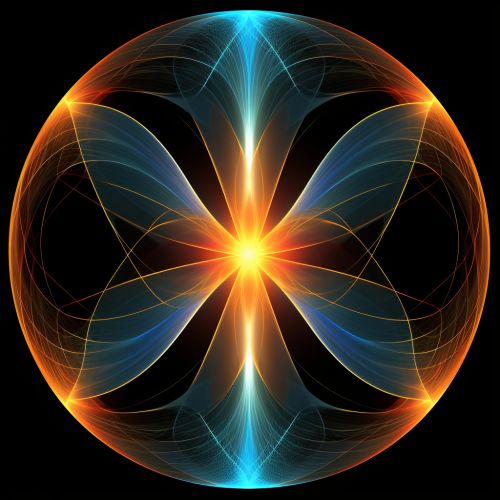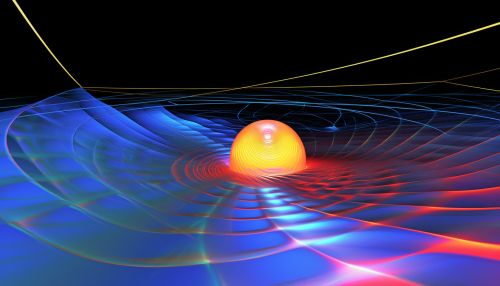Quantum State
Introduction
A quantum state is a mathematical entity that provides a probability distribution for the outcomes of each possible measurement on a system. In quantum mechanics, the state of a physical system is represented by a vector in a complex Hilbert space. This vector representation is known as the state vector, and it evolves according to the Schrödinger equation.


Quantum State in Quantum Mechanics
In quantum mechanics, the quantum state of a system is represented by a wave function, denoted by the Greek letter psi (ψ). The wave function is a complex-valued function of space and time that provides the most complete description possible of a quantum system. The square of the absolute value of the wave function, |ψ|^2, gives the probability density for the system to be found in a particular state.
Quantum Superposition
A fundamental concept in quantum mechanics is the principle of superposition. This principle states that any quantum state can be represented as a linear combination of other quantum states. This means that a quantum system can exist in multiple states simultaneously, a phenomenon that is fundamentally different from classical physics.
Quantum Entanglement
Quantum entanglement is a physical phenomenon that occurs when two or more particles become linked and the state of one particle cannot be described independently of the state of the other particles, even when the particles are separated by a large distance. This phenomenon leads to correlations between observable physical properties of the systems.
Quantum State Collapse
The collapse of the quantum state is one of the most mysterious aspects of quantum mechanics. It is the process by which a quantum system transitions from being in a superposition of states to one of those states after a measurement is made. The exact nature and cause of this collapse is a topic of ongoing debate in the field of quantum mechanics.
Quantum State and Quantum Computing
In quantum computing, quantum states are used to represent and manipulate information. Quantum computers use quantum bits, or qubits, which can exist in a superposition of states, unlike classical bits that can be either 0 or 1. This allows quantum computers to perform complex calculations much more efficiently than classical computers.
